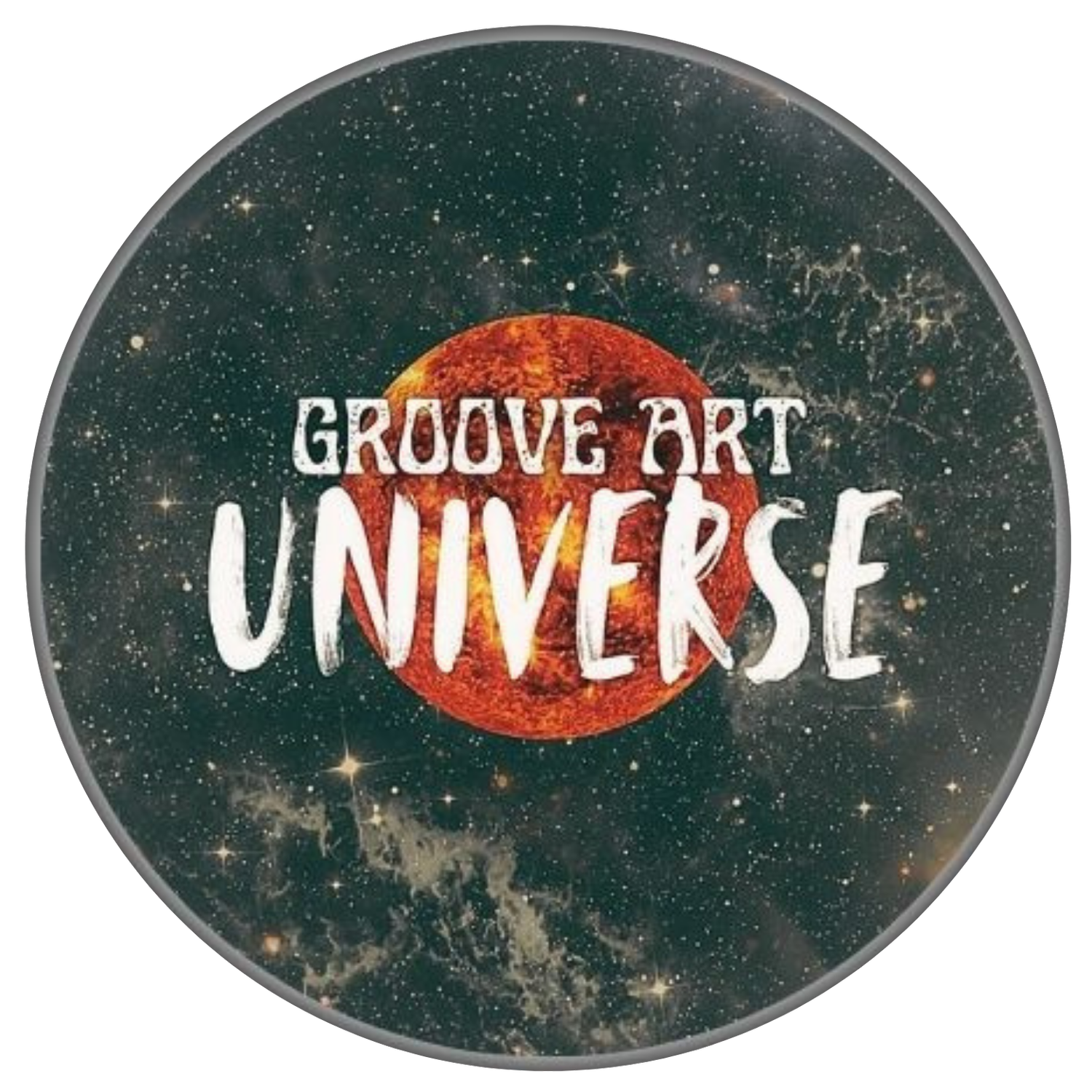
Groove Art Feature
Dim Dead Boy
Dawn on the Distant Moon
Dim Dead Boy makes (usually) long-form, cinematic instrumental music that lets its ideas marinate, stretch, build, and find their resolution on the other side of the mountain.
The ambition involved in a 6-song album with a run time of nearly an hour and 15 minutes, and “conceptualized as the ethereal dreams of a cosmonaut in suspended animation while he traverses interstellar space”, is a rare thing to find in the indie space.
Dim Dead Boy either did a killer job retroactively characterizing the sound they’d already achieved, or they did a killer job executing the concept at which they were aiming. And as niche as that sounds, there’s something pretty tempting in all this.
Though it may not be self-evident, the idea of drifting unconsciously through space, getting ever further from the morass that Earth is becoming, and tunneling deeper into the void, where awaits - at worst - the quiet blackness of eternity… it’s almost comforting these days.
Though sprinkled with keys and synths, for the most part the arrangements on this album are fairly sparse despite the grand and galactic feel of it all. The drums and bass are the constants, providing a coherent underpinning for a variety of sonic and melodic explorations on the guitar.
The drums are played, and spectacularly so, by Combover Beethoven’s own Unit, who’s becoming something of a session player fixture on the globalized Internet Indie scene. They’re delightfully atmospheric, thunderous at times, swimming in enough reverb to make them feel as though they’re echoing through the abyss.
It’s over this skeleton that guitarist and primary composer Brian Lynch stretches the meat of these creations - a range of guitar sounds and ideas, never particularly complex, but always patient, thoughtful, tasteful, and devastatingly effective.
Opening track “Lunar Rover” is a monster - a 26 minute standalone symphony in at least 4 distinct movements, that alternately sways, meanders, lolls, and charges through a spectrum of emotion and urgency.
At a positively brisk 9 minutes, the follow-on track “Celestial Siren Song” begins with a ghostly, lonely guitar motif that shimmers like distant stars against the black of space, the bass and drums interjecting like the nagging thoughts that plague our meditations, or perhaps the interloping flickers of comets or the ominous shadows of unseen planets drifting across the pinpricks of light.
After a couple of minutes, Lynch steadies the course and starts building momentum, gathering steam until the steady drone of the background feels like all the universe is humming along with us. And here, around the halfway mark, we pass some terrifying threshold, as if the gravity of a nearby star, or a black hole, is tugging at the seams of our cosmonaut’s conscious mind, attempting to draw him from his sleep with that dread pit in the stomach.
The tune takes a fascinating left turn into something wicked and imposing, finally culminating in a wall of fuzzy guitars and a sort of faux-triumphant crescendo, a glued-on bravado, just enough to break through to the other side, where we find ourselves finally, mercifully, floating again in tranquil, empty space.
“Metaphysical Love Lounge” offers a brief and uncharacteristic interlude, including a spoken-word dialogue over an uneasy and eerily beautiful backdrop of glittering guitar work.
Here it’s on to “Interstellar Sleep Cycles”, which opens on a hypnotic and lovely meditation that indulges and blooms and finally spills over into something more akin to a fever dream, quickly relieved, and then plunging again into a further exploration of these stages. It’s hard not to imagine a story as you listen, even to picture scenes and scenarios. This is very thoughtful work, entirely kinetic, but also rich in potential energy.
“Dab Tsog” (a Hmong name for a sleep paralysis demon) is the first song I ever heard by Dim Dead Boy, seemingly ages ago, and it’s a beauty. The gentle resonance of the guitars in the beginning suggest a gentle, warm cocoon. There are ominous tones that flicker across the far background, but it takes a good 4 minutes before we arrive at anything that feels akin to sleep terrors - in fact, along the way there are moments that feel almost transcendent.
But the home stretch piles on the anxious, crunchy guitars and now the theme from earlier in the tune comes back in the light of this new and uneasy weight, and feels more like the knowledge that the dream can end, like the light we’re reaching for to try and wake us up.
Finally, a respectable 15 minute closer - “Longhaul Cosmonaut’s March Through Time & Space” - takes us home in spectacular fashion. A long, soft buildup - and a couple of different teases - before the dam of expectation breaks, at long last, and we are treated to the emotional release we’ve been craving - perhaps without realizing it. A deftly evocative and smartly phrased guitar solo that carries us up to the pulverizing crescendo and over the rim, falling once again into the unknown.
There is a lot to love in this album - the staggering scope, the herculean patience, the self-control, the imagination, the atmosphere - and I don’t imagine any 2 listeners will come away with the same perspective on what it did best. For me, it’s a singular piece of work from a singular artist, a vision no one else could’ve realized, and one that’s immensely rewarding to anyone with the time and bandwidth to pay it the proper attention.
SUPPORT THIS ARTIST
FOLLOW ON SPOTIFY
ADD ON APPLE MUSIC
